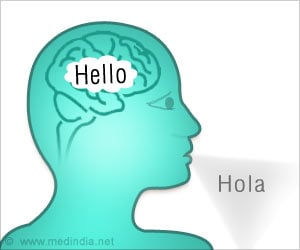New approach to debate on the advantages and disadvantages of bilingualism. The bilinguals obtained a higher percentage of correct answers, however, they needed more time to detect if there were any anomalies.

‘Cognitive abilities of bilinguals can help them detect erroneous constructions quickly. However, not all of which are necessarily advantageous.’





Now, an experiment conducted by researchers at the Universitat Rovira i Virgili, Tromsø University – The Arctic University of Norway and the Norwegian University of Science and Technology has studied the responses of bilingual and monolingual people when they read grammatical illusions, a category of manipulative discourse that deceives the mind by leading it to accept constructions that make no sense. The results of the experiment have necessarily changed the debate on bilingualism.
A total of 276 people took part in the study: half were monolingual in Greek and the other half were bilingual in Greek and a Germanic language. They had to state whether the grammatical constructions presented to them were correct, incorrect, or neither correct nor incorrect.
The analysis of the results showed that the bilingual participants obtained a higher percentage of correct answers, but also needed more time to detect if there were any anomalies.
More specifically, bilinguals detected 56% of the grammatical illusions, whereas monolinguals detected only 39%. This means that bilingual people are better able to detect manipulations in a discourse. However, they need more time to come up with an answer, especially when they see that what is presented to them may not be correct.
Advertisement
The results have been published in the scientific journal PLOS ONE and the researchers Evelina Leivada (URV), Natalia Mitrofanova (University of Tromsø – The Arctic University of Norway) and Marit Westergaard (University of Tromsø – The Arctic University of Norway and the Norwegian University of Science and Technology) emphasise that the need to change the focus of the debate around the advantages and disadvantages of bilingualism.
Advertisement
"In other words, the cognitive abilities of bilinguals can increase their ability to detect erroneous constructions, but this is part of a larger set of effects resulting from their bilingualism, not all of which are necessarily advantageous”, concludes Evelina Leivada, researcher at the URV’s Department of English and German Studies.
Source-Eurekalert








